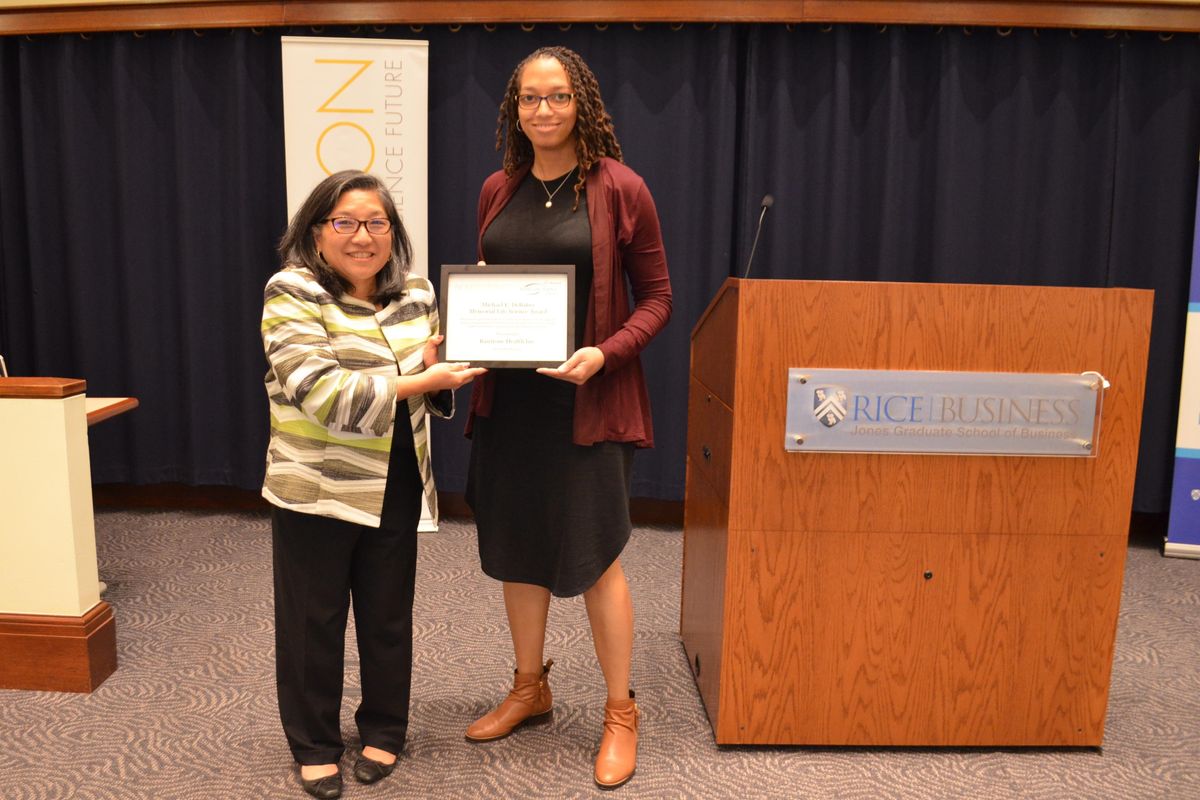TMC names latest cohort of health tech innovators for 2024 program
ready to grow
The Texas Medical Center Innovation has named its new cohort of health tech companies it's currently accelerating.
This first batch of companies for 2024 was selected from last fall's TMC Bootcamp. Eight of the 10 startups from the bootcamp have moved on to the Accelerator for HealthTech.
"Hailing from diverse corners of the globe—from the tech corridors of Texas and California to Ireland and Australia—these companies converge with a shared mission—to move healthcare forward," Devin Dunn, head of the Accelerator for Health Tech, writes in a TMC blog post. "Through personalized mentorship and guidance, these eight companies are able to navigate complex challenges and refine their strategies, while leveraging the expertise of Texas Medical Center ecosystem to validate their innovations and drive real-world impact."
The selected companies include:
- AcorAI, from Stockholm, Sweden, which is developing a first-of-its-kind, hand-held, scalable medical device for non-invasive intracardiac pressure monitoring to improve heart failure management for more than 64 million patients worldwide.
- AirSeal, based in St. Louis, Missouri, which has developed a novel serum-based biomarker technology – circulating fatty acid synthase (cFAS) – that can diagnose cardiovascular and peripheral artery disease with high accuracy in both women and men.
- Foxo, headquartered in Brisbane, Australia, serves as an interoperable tool designed to enhance clinical collaboration across the healthcare ecosystem. It enables secure, two-way communication with features such as video, voice, screen share, file sharing, and real-time messaging.
- San Francisco-based Knowtex, an artificial intelligence-powered software writes medical documentation for you and assigns correct codes to ensure proper reimbursement.
- NeuroBell, from Cork, Ireland, which is working on a novel medical device providing portable EEG monitoring with real-time and automated neonatal seizure alerts at the bedside.
- Perth, Australia-based OncoRes Medical that's developing an intraoperative imaging technology to provide surgeons with real-time assessment of tissue microstructure.
- From right here in Houston, Steradian Technologies, which has created RUMI, the first noninvasive, fully portable infectious disease diagnostic that costs the price of a latte. It uses novel photon-based detection to collect and diagnose infectious diseases in breath within 30 seconds.
- TYBR, also based in Houston, created a flowable extracellular matrix hydrogel, crafted to safeguard healing tendons and ligaments from scarring and adhesions. The company originated from the TMCi’s Biodesign fellowship and now has entered into the Accelerator for HealthTech to sharpen its regulatory strategy, particularly in anticipation of FDA conversations.
Applications for the next Accelerator for HealthTech will open in May of this year.

 Ann Tanabe, CEO of BioHouston, presented the DeBakey Award to Houston-based Bairitone Health. Photo courtesy of Rice Alliance
Ann Tanabe, CEO of BioHouston, presented the DeBakey Award to Houston-based Bairitone Health. Photo courtesy of Rice Alliance